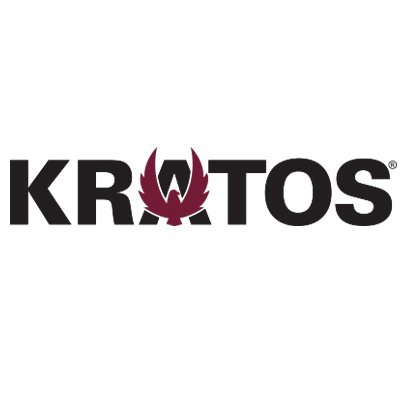-
increase in revenue: Fourth-quarter revenue increased 9.8% to $273.8 million, and full-year revenue increased 15.5% to $1.037 billion.
-
Net income: Fourth quarter net income attributable to Kratos was $2.4 million, a significant improvement from the fourth quarter 2022 net loss of $8.3 million.
-
Adjusted EBITDA: Adjusted EBITDA increased to $29.1 million in the fourth quarter, and full year adjusted EBITDA reached $95.4 million.
-
Cash flow: Fourth quarter operating cash flow was strong at $67.4 million, and full year operating cash flow was $65.2 million.
-
Booking and billing ratio: The consolidated sales ratio for the fourth quarter was 1.2:1, indicating healthy order intake.
-
Predictions for 2024: Kratos projects organic revenue to grow 10% in 2024 despite industry challenges.
On February 13, 2024, Kratos Defense & Security Solutions Inc (NASDAQ:KTOS) released its 8-K report detailing its fourth quarter and full year 2023 financial results. The company is a leading technology company in the defense and national sector. The security market reported strong revenue growth and a return to profitability in the fourth quarter, while also achieving solid cash flow generation.
Kratos specializes in developing and operating innovative and affordable technologies, platforms, and systems for the United States and its allies. The company operates through two segments: Kratos Government Solutions (KGS) and Unmanned Systems (KUS). KGS includes microwave electronic products, space, training, cybersecurity, C5ISR/modular systems, turbine technology, defense and rocket support services, and is a key revenue driver for Kratos.
Financial performance and challenges
The company's fourth quarter revenue was $273.8 million, an increase of 9.8% year-over-year, with organic growth of 7.3%. Full-year revenue reached $1.037 billion, an increase of 15.5% compared to 2022, with organic growth of 12.6%. This growth reflects Kratos' continued focus on its core defense and security markets.
Despite these gains, Kratos faced challenges, including a decline in tactical drone activity within its KUS division, which resulted in sales declining from $62.7 million in Q4 2022 to $55.4 million in Q4 2023. decreased to $. The company also highlighted the difficulty of attracting and retaining qualified talent. Particularly those that can obtain national security clearance will affect profits. Additionally, uncertainty surrounding the U.S. federal government's budget poses risks to Kratos' financial projections.
Financial performance and industry importance
Kratos' financial results, particularly the strong cash flow generated by its operations, are critical to sustaining its investments in research and development (R&D). The company's research and development activities, which totaled $8 million in the fourth quarter and $38.4 million for the full year, include space and satellite communications businesses, including virtual software-based OpenSpace command and control (C2) and telemetry tracking and control (TT&C). is focused on the development of ), and other ground system solutions. These investments are critical to keeping Kratos competitive in the rapidly advancing aerospace and defense industry.
The company returned to profitability in the fourth quarter, with net income attributable to Kratos of $2.4 million, a significant improvement from the net loss of $8.3 million in the same period last year. This improvement demonstrates the company's effective cost management and strategic focus on high-growth areas.
Key financial indicators
Key financial metrics in Kratos' earnings report include:
-
Operating income: Operating income for the fourth quarter was $11.7 million, and full-year operating income reached $31.1 million.
-
Adjusted earnings per share (EPS): Fourth quarter adjusted EPS increased to $0.12 from $0.08 in Q4 2022.
-
free cash flow: Free cash flow from operations in the fourth quarter was $48.1 million after capital expenditures of $19.3 million.
-
Unfinished business: Consolidated order backlog as of December 31, 2023 was $1.24 billion, indicating a strong pipeline of future revenues.
These metrics are important because they provide insight into a company's operational efficiency, profitability, and future revenue potential.
Comments from the leaders
“Kratos' strategy as a technology company and internally funded investments to bring affordable systems, software and products to market quickly is a success,” said Eric DeMarco, president and CEO of Kratos. It is being implemented.” He also noted that the company is focusing on growth areas such as satellite communications, jet engines for drones, hypersonic systems and augmented reality training systems.
Mr. DeMarco highlighted the company's unique position in producing affordable and expendable tactical jet drones, as well as its plans to triple its drone production capacity. He also acknowledged the challenges posed by the current employment environment and the U.S. federal budget situation.
Financial forecast for 2024
Kratos provided initial financial guidance for 2024, projecting organic revenue growth of 10%. This guidance includes assumptions regarding employee sourcing, manufacturing, production, supply chain disruptions, and parts shortages. The company is expected to increase capital expenditures to meet anticipated customer orders and requirements, including manufacturing his two production lots of Valkyrie ahead of contract signing.
The company's forecasts for the first quarter and full year of 2024 are as follows.
|
Q1 2024 |
FY2024 |
|---|---|
|
Revenue: $240 million to $260 million |
Revenue: $1.125 billion – $1.15 billion |
|
Adjusted EBIT |
For more information, see Kratos Defense & Security Solutions Inc's full 8-K earnings release here.
This article first appeared on GuruFocus.


